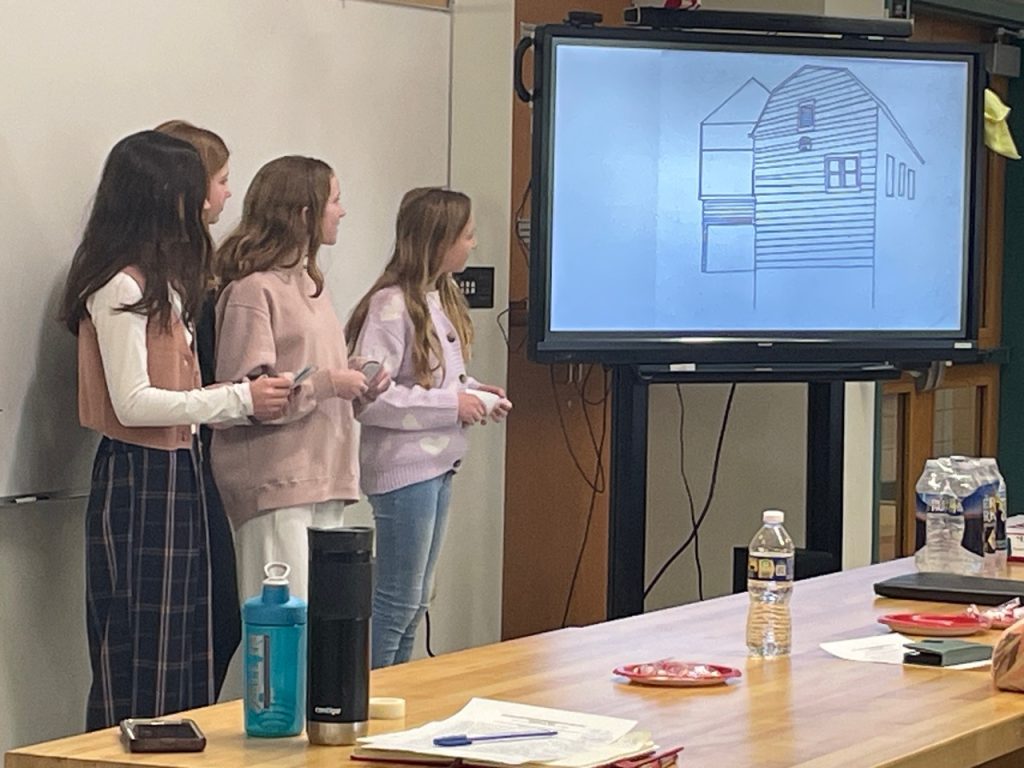
Pine-Richland Sixth-Graders Complete Architecture Apprenticeship

For the ninth consecutive year, gifted students at Eden Hall Upper Elementary School in the Pine-Richland School District took part in a program that brings to light the mutually reinforcing benefits of historic preservation and environmental sustainability.
Working in eleven teams, the 45 sixth-graders proposed ideas for re-use of a small 1913 Dutch-gabled house on the Eden Hall campus of Chatham University as either a recreation center, a building to support campus farm operations, or a bicycle repair and rental shop.
The three programs were specified by faculty and staff at Chatham, the “client,” which has partnered with our organization since the program’s inception. The students’ work started in the fall semester, culminating in formal presentations, in early February, to their teachers, a team of architect mentors brought together by our organization, and a large number of parents.
Awards were given to recognize not only outstanding design, but also achievement in presentation—i.e., in how well the students communicated their ideas through architectural drawings and models.
Mary Whitney, who is the sustainability director for Chatham’s campuses, said she was “blown away” by the students’ designs. “They really did their research and listened to what we [the client] told them.”
The Architecture Apprenticeship program fulfills some of Pennsylvania’s educational standards for career education by introducing students to the various professional roles involved in architecture, historic preservation, and sustainability.
Jennifer Kopach and Joanna Sovek, the teachers, also see the program’s iterative process as imparting to the students an invaluable framework for navigating life, regardless of the fields the students eventually pursue.
“The students have to respond to the client’s needs and incorporate into their designs the feedback they receive from the architect mentors in multiple reviews,” said the teachers.
Through that process, they added, “the students learn that nothing is perfect on the first try and that being able to accept and integrate constructive criticism is important, and by working in teams, they also come to understand the need for compromise.”
